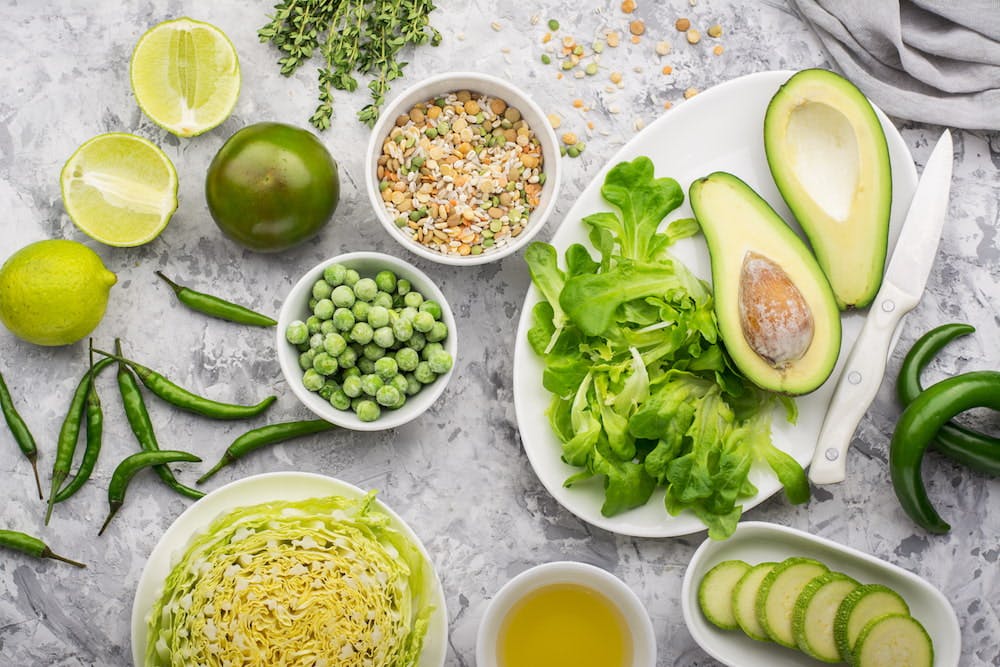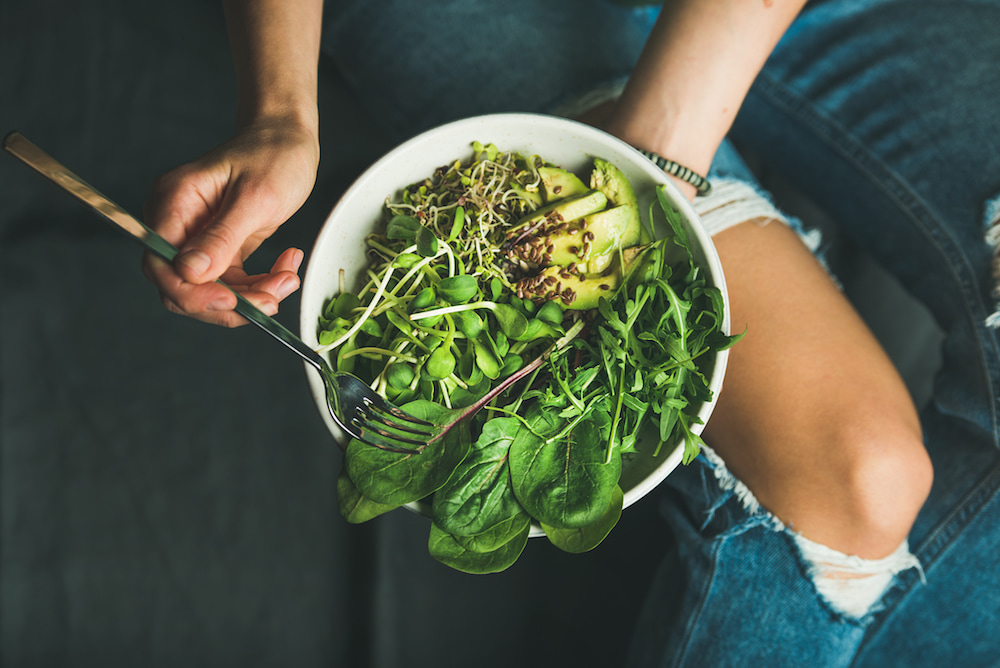
According to a new survey, 11% of UK consumers say they’ve tried a vegan diet, and 19% would consider going vegan. But what exactly does that entail?
The Vegan Society defines veganism as “a way of living which seeks to exclude, as far as is possible and practicable, all forms of exploitation of, and cruelty to, animals”. Like vegetarians, vegans do not eat any form of meat, however, they go one step further and avoid all animal products completely, including dairy, eggs, and honey.
People have many different reasons for, and ways of being, a vegan. “801010”, “HCLF”, “Raw Till 4”, what’s it all about? Get the low-down on 5 different types of vegan diets.
1. Ethical
Perhaps the most common and unifying reason that people decide to go vegan is in the pursuit of a more caring, compassionate lifestyle. Vegans believe in ending the exploitation of animals, which is why veganism often expands into lifestyle choices such as avoiding cosmetics with animal ingredients, or that are tested on animals, wearing wool, silk and leather, or visiting zoos and aquariums.
There are 542,000 vegans in the UK (42% are aged 34 or under)
While some protest at modern mass-market meat and dairy industries, others take the viewpoint that, as sentient beings, it’s simply not our place to take from animals, be that by eating their meat, using their skin, or taking milk or eggs.

2. Plant-based
Some people choose to follow a vegan diet for health reasons or to lose weight, without engaging with the troubling ethics. For this reason, they may choose the label “plant-based”, as they continue to use animal products such as leather, silk, and honey.
While it is still very possible to be an unhealthy vegan (Pringles, Oreos, and even Pot Noodles are vegan!), a plant-based diet is only about eating things that have been grown in the ground, and cooked in a way that preserves as much of the natural nutrients in the food as possible. By avoiding meat and dairy, vegan diets automatically cut out a lot of saturated fats, but plant-based diets take this notion one step further by also avoiding processed foods altogether, with a stern focus on “clean eating”.
3. Raw
Raw vegans choose not to eat anything cooked or heated up, so this diet mainly consists of fruit, vegetables, nuts, seeds and grains. Some may choose this diet for health benefits. Others choose the diet for spiritual reasons, looking to recreate a new Eden. Some raw vegans will follow an 80/10/10 diet: 80% carbohydrates, 10% fat, and 10% protein. Another option is “Raw Till 4”, popularised by vegan bloggers, by eating raw food until 4pm, then a cooked meal for dinner.
4. HCLF
High carb low fat (HCLF) vegans will eat huge quantities of carbs in the form of fruit, vegetables and grains, and as little fat as possible. HCLF has various options depending on what the individual is looking for in the diet.
Some want carbohydrates from fruit and veg, similar to raw vegans; others have a lot of potatoes, rice and pasta. Healthy fats (avocado, seeds and nuts) are still essential in the diet, but are eaten in smaller quantities. For newbies, the HCLF diet plan can be a nice guide to eating a balanced, healthy diet without the restrictions of “raw” or “plant-based” diets.
5. Environmentally conscious
More people are trying to make changes in their daily lives to better take care of our planet. Mass consumption of meat and dairy puts a lot of pressure on the environment. The space needed to home animals has resulted in huge areas of deforestation.
In Brazil, the world’s largest exporter of beef, the Amazon rainforest has been hugely affected by the livestock industry. What’s worse, both the animals and their transportation release a huge amount of greenhouse gases into the atmosphere. By boycotting the livestock industry, environmentally conscious vegans hope to cut down their carbon footprint and reduce their impact on the environment.
If you’re thinking of adopting a vegan diet but aren’t sure if it’s right for you, consider speaking to a qualified nutritionist on Nutritionist Resource.

